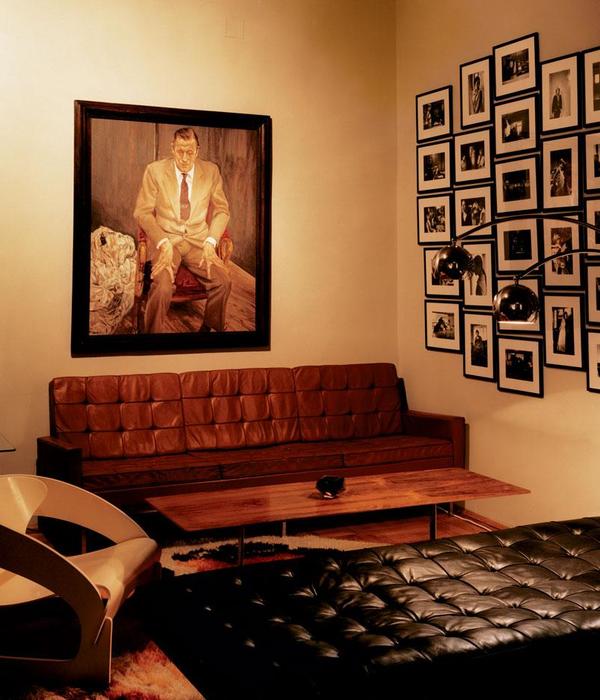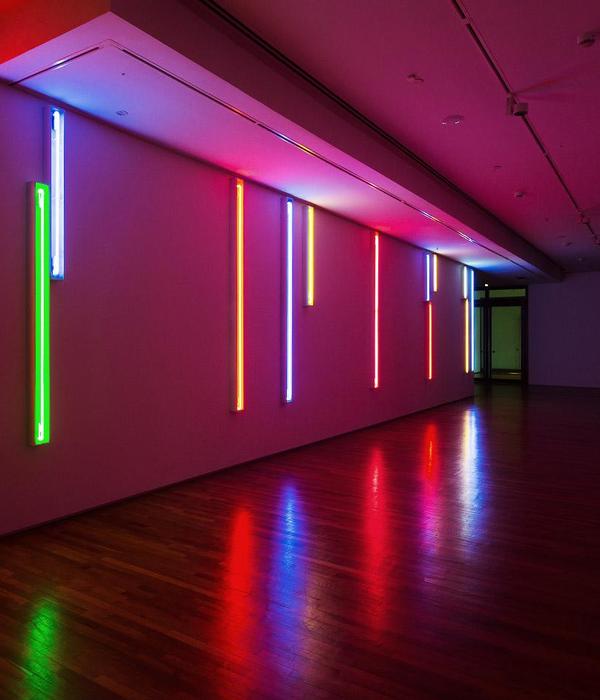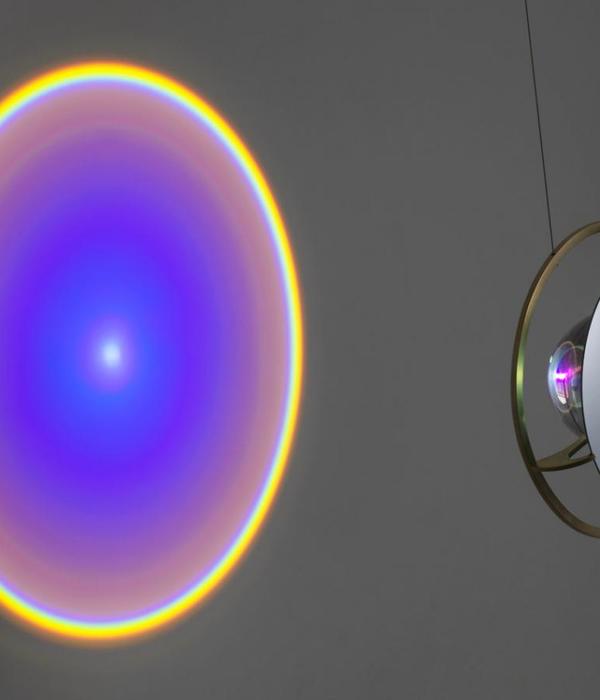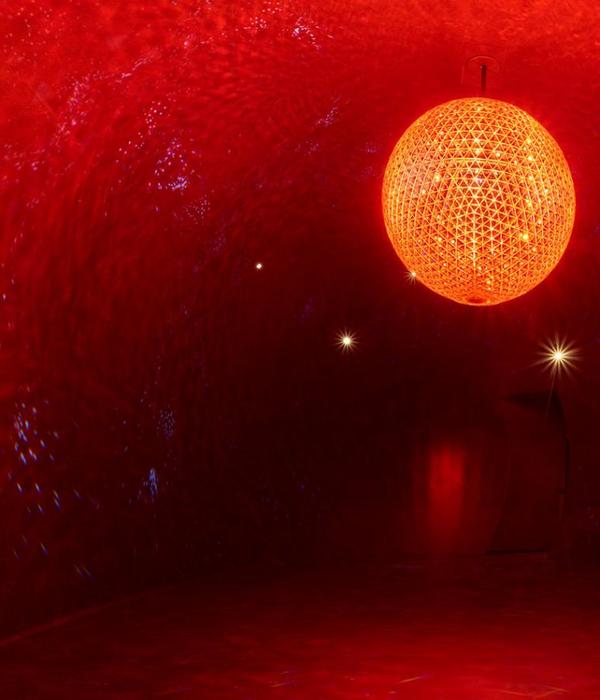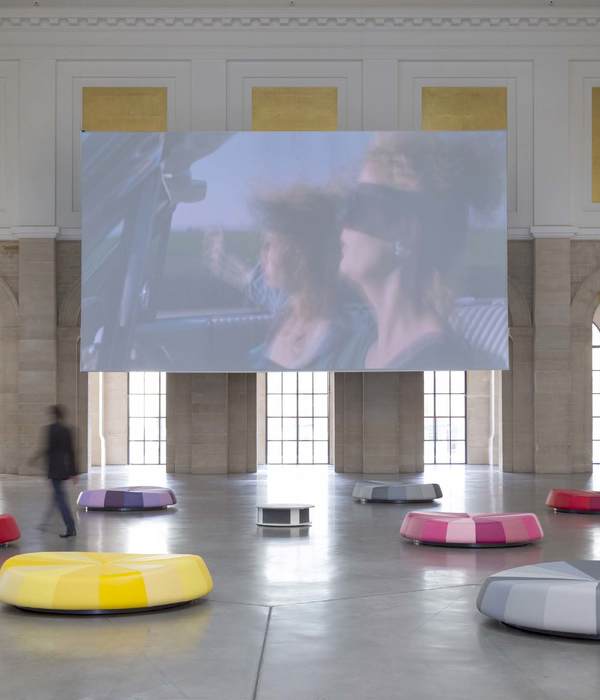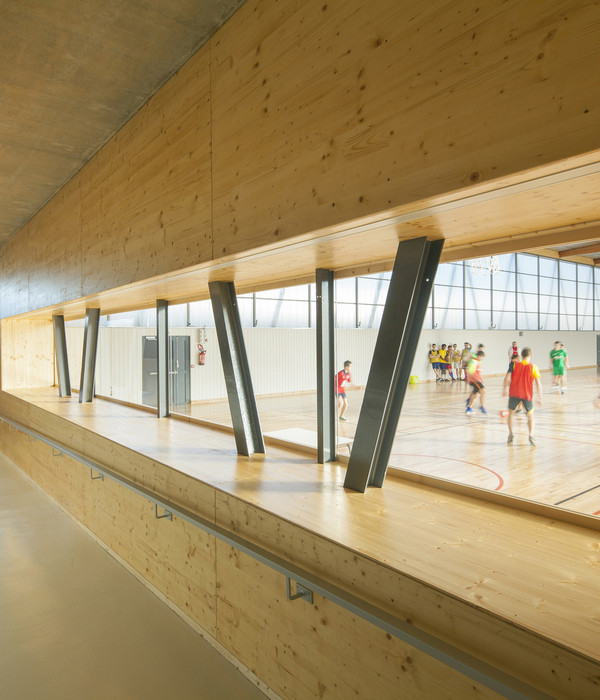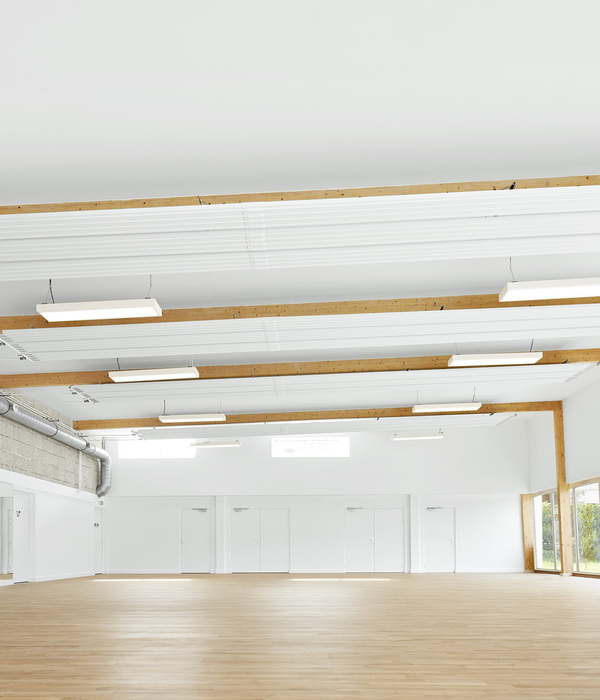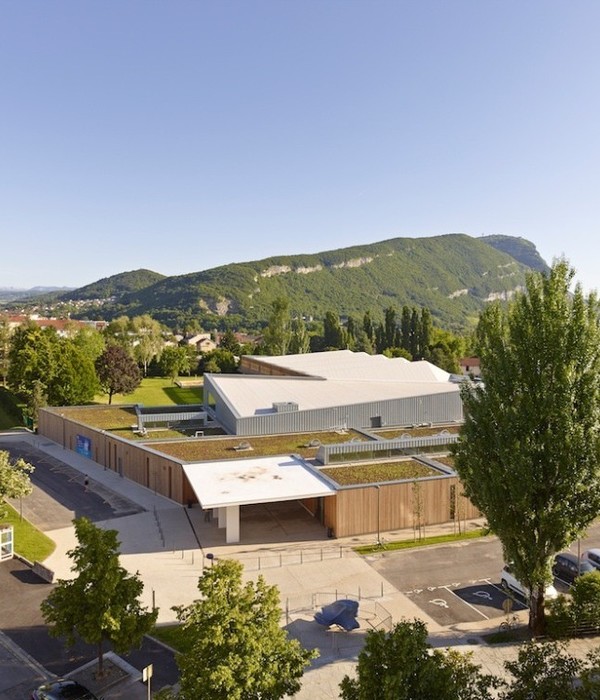- 项目名称:2017中国国际园博园乌鲁木齐园
- 地点:郑州,中国
- 客户:新疆乌鲁木齐园林局
- 设计团队:钟惠城,徐捷,宋妃敏,李中伟,林丙兴,蓝皓,昝勤
- 施工图团队:邓柳军,肖丙如,丁秋伟,王之书,林转娣
- 面积:0.6公顷
第十一届中国国际园林博览会乌鲁木齐园是Lab D+H设计建成的首个展园类公共项目。随着近年来各类园博园的连续举办,各城市展园仿佛进入了定型化的时期,微缩、复制、仿古成为了园博园景观设计的主流手法。Lab D+H在如此背景下,带着反思的视角参加了乌鲁木齐园的设计竞赛并获得了第一名。经过将近半年紧锣密鼓的施工,展园现已完工并跟随第十一届园博园的开幕开始迎接游客。
The Urumqi Garden of the 11th China International Horticultural Expo was Lab D+H’s first built garden expo project. With the sudden boom of the garden expo in China recently, local gardens that represent individual cities tend to be stereotyped to miniature landscapes or traditional gardens of local landscapes. Keeping this in mind, Lab D+H participated in the competition at Urumqi Garden with a reflection perspective and won the 1st place. The garden was finished and opened to the public after a tight construction schedule.
▼展馆,pavilion
展园
The Garden
我们的设计策略希望回归园博园展览的本质——通过设计为园艺展示提供一个戏剧化的空间舞台,同时,在呈现当地景观与建筑面貌上向业主建议创新的形式。另一方面,我们不得不同有着固定园博园展览思维的业主在设计上进行博弈与斡旋,把设计的现代性藏匿于传统语言的外衣之下。我们以新疆传统弦乐器“热瓦普”为启发,设计了以音乐为主线的参观动线。该动线以一条蜿蜒的琴弦园路为引导,依照维吾尔木卡姆乐章气氛组织游览和空间序列。琴弦园路带来的抬升与下沉、围合与开敞等体验,为园艺展示提供了空间素材,也为参观中的游人带来了丰富的空间感受。琴弦园路所引向的终点是一座以镂空砖为表皮的圆形展馆,代表“热瓦普”的发声装置——“共鸣箱”
The design strategy aimed to bring back the core value of horticultural expo. We achieved this by implementing fundamental landscape approaches such as space making and planting design. Simultaneously, we also tried to express local identity in a new and unique way. We designed a music-themed tour route which was inspired by the traditional Urumqi stringed instrument– rawap. The route was made up of a meandering “string” path, creating a rich spatial experience of rising and descending drama clubbed with both open and closed spaces. The entire route was based on the Urumqi maqam rhythm. The climax of the “string” path was a circular pavilion with a perforated brick pattern skin, that representing the core part– the sound hole of a rawap.
▼概念,concept
▼总平面图,master plan
▼贯穿乌鲁木齐园的琴弦园路,the “string” path that goes through the landscape
▼琴弦园路的抬升与下沉、围合与开敞带来了丰富的空间感受,creating a rich spatial experience of rising and descending drama clubbed with both open and closed spaces
在种植设计上,我们用既能够代表新疆,又能够在郑州生长的植物品种,展现了新疆的自然人文景观面貌——玫瑰花田、沙漠风貌、葡萄藤架、绿洲人家。展园中央的沙地景观(同时也是一处雨水花园),配合着沙枣、柽柳以及老榆枯桩,让人联想起戈壁沙漠的植被风貌。
We carefully selected local plants that resembled Urumqi’s plant species to represent Urumqi’s natural and cultural landscape, this included recreating rose field, desert land, grape trellis and green oasis. Planted with Tamarisk, Angustifolia and other drought tolerated species, the small sand field -which was also a rain garden- recalled people’s memory on the Gobi landscape of Urumqi.
▼采用既能代表新疆又能在郑州生长的植物,carefully selected local plants that resembled Urumqi’s plant species to represent Urumqi’s natural and cultural landscape
展馆
The Pavilion
设计师和工匠们共同精心打磨的新疆园特色展馆建筑,是一个以拥抱公共空间为理念,半开放式的现代景观建筑。 建筑空间和每个细节元素的组合,都在体现传统新疆建筑特色的同时,使得建筑更充满现代感,整体园区景观更能和谐统一。 整个建筑的空间行进体验是一种户外景观拓展的表达,采用一条旋转坡道,将室外的“琴弦”园路延伸带入室内,绕梁而上,模糊了室内外分界; 人们在坡道上的各个角度都可以观看到建筑供人聚集和互动的中心舞台空间。
The Garden Pavilion is a semi-open and modern landscape building. The design expresses the concept that the architecture embraces the public space. The combination of the architectural space and each detail element reflects both of the modern architecture style and traditional architectural features of Urumqi. The entire circulation experience of the pavilion is an expression of the outdoor landscape expansion. For example, the rotating ramp brings the outdoor “string” garden into the interior area which blurs the boundary between inside and outside space. The modern corridor and the hidden pillar structures give more possibilities to the overhangs and opening of this brick pavilion.
▼以拥抱公共空间为理念,半开放式的现代景观建筑,the design expresses the concept that the architecture embraces the public space
▼用一条旋转坡道将室外“琴弦”园路延伸带入室内,the rotating ramp brings the outdoor “string” garden into the interior area
现代刚结构建筑的柱廊和暗藏的吊柱,都赋予了这座外部砖式建筑更多的悬挑和开敞可能。 建筑的屋顶及立面,采用了新疆民居“阿以旺”和凉房的镂空砖形式。传统原型和质朴材料的选择,让人们在感受不停变换的建筑光影同时,希望触动他们对于美丽新疆的记忆,尽情在“麦西舞厅”内晾晒美好。
Following the ramp, visitors will be able to see the central stage from different angles, where people usually gather and interact. Furthermore, the roof and facade of the building are inspired from the Urumqi residential type called “Ayiwang” and the brick form. Those traditional archetypes and the choice of simple materials make people feel the ever-changing architectural light and shadow. At the same time, it helps to touch their memories of the beautiful Urumqi, enjoying the beauty of the pavilion.
▼建筑与新月倒影池的倒影,architecture and reflection
▼游人与景观的互动,tourists and the architecture
▼围墙细节,detail of the wall
设计名:乌鲁木齐园
项目名:2017中国国际园博园乌鲁木齐园
地点: 郑州,中国
客户: 新疆乌鲁木齐园林局
设计团队:钟惠城、徐捷、宋妃敏、李中伟、林丙兴、蓝皓、昝勤
施工图团队:邓柳军、肖丙如、丁秋伟、王之书、林转娣
面积: 0.6公顷
Design Name: Urumqi Garden
Project Name: 2017 China International Horticultural Expo Urumqi Garden
Project Location: Zhengzhou, China
Client: Urumqi Garden Bureau
Design Team: Huicheng Zhong, Xu Jie, Feimin Song, Zhongwei Li, Bingxing Lin, Hao Lan, Qin Zan
CD Team: Liujun Deng, Bingru Xiao, Qiuwei Ding, Zhishu Wang, Zhuanti Lin
Site Area: 0.6 HA
Chinese & English text: Lab D+H
{{item.text_origin}}

